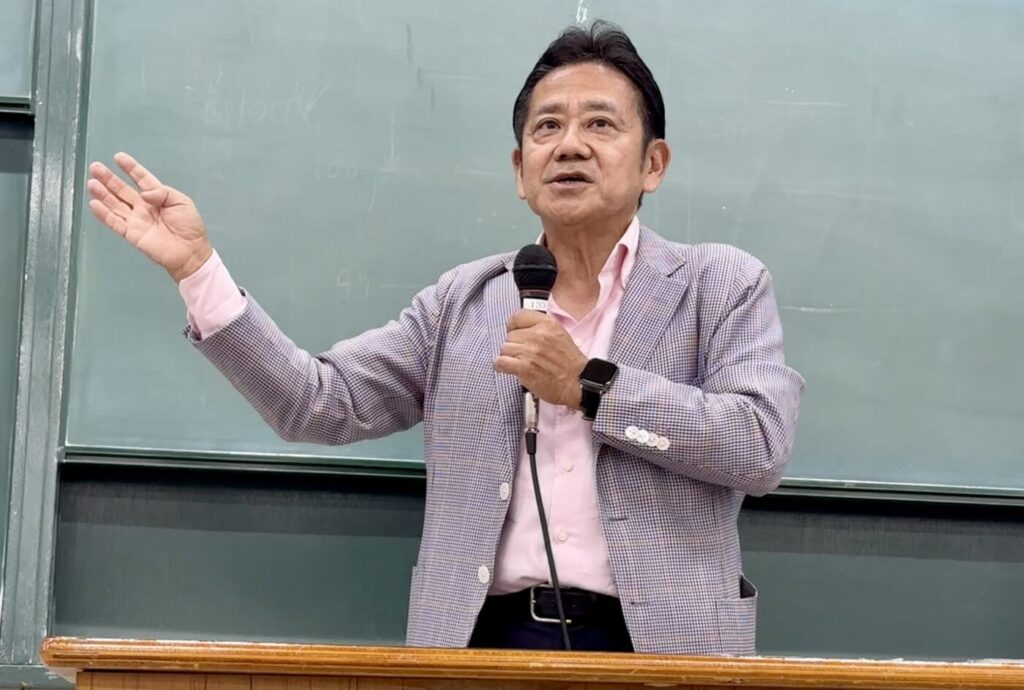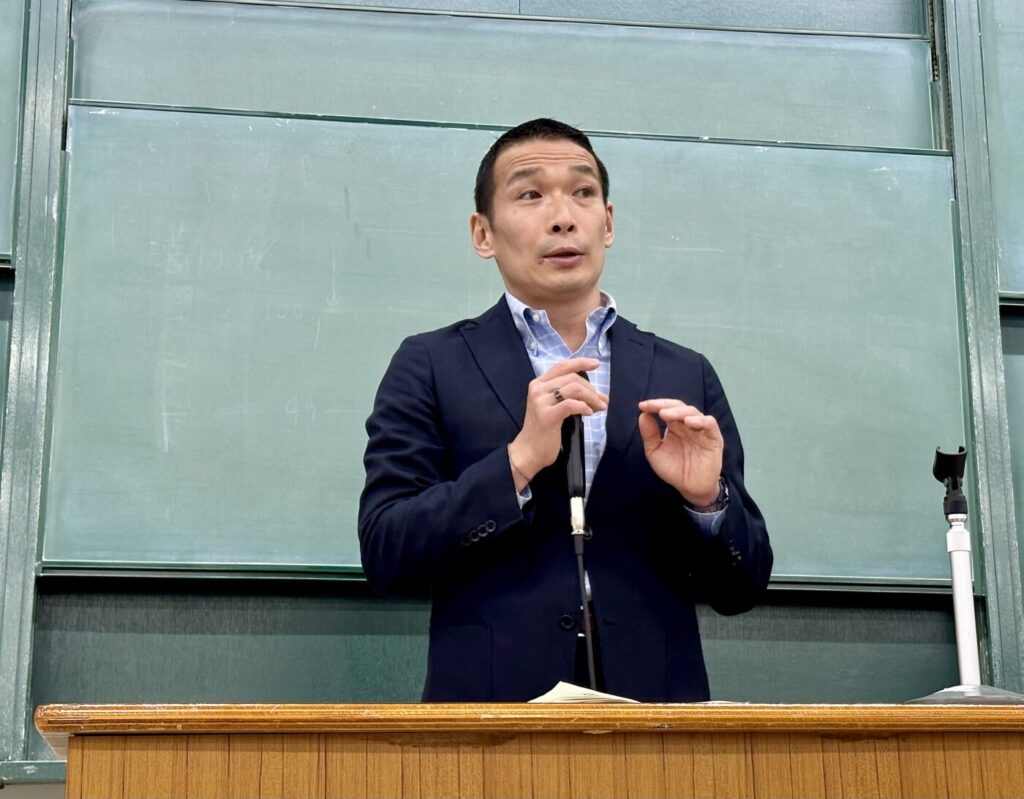Today’s lecture flow
▼Professor Tamura – Basic Points of Dialogue (lecture)
▼ Professor Tamura, TA Koyama – Group dialogue (exercise)
Learning of the students – Extracts from the reflection sheets submitted after the lectures
● Third-year student in the Department of Law, Faculty of Law
The learning in this class was mainly about thoughtful approaches to problem solving.In the exercise, I learned that there are two types of problem-solving approaches: the “retrospective approach” and the “incentive approach.” Of the two, the “incentive approach” was particularly shocking to me.The incentive approach refers to a method of solving problems while considering what incentives the treatment of a particular problem will create for the rest of society, but I had never attempted problem-solving using this approach before.In my life, I have always taken the attitude of “let’s learn from past cases” when solving problems in my own organization, so the incentive approach, which “considers the subsequent impact of problem-solving and aims to solve problems that will have a better impact on society,” was very new to me.In addition, I belong to a law faculty, and when solving case problems in my daily classes, “past precedents” appear as leading cases, and most of the time, I make my own answers and think about how to handle dispute resolution by referring to those precedents.
Therefore, when it was pointed out to me that “many lawyers are strong in the retrospective approach but weak in the incentive approach,” I gasped when I realized that the very process of referring to past cases in the practice of law has resulted in the fixation of this way of thinking, and I also reflected on my own approach to thinking when I realized that it had also become fixed.I think that learning about the incentive approach in this class was a truly valuable realization for me.In recent years, there have been many legal disputes in various fields, such as labor law and economic law, that cannot be dealt with by the conventional legal system. The incentive approach is an extremely important thought process in law, given that new legal solutions to new problems will be required in the future.Therefore, I intend to utilize the incentive approach in addition to the retrospective approach in the future.
● Third-year student in the Department of Law, Faculty of Law
In the first case, the discussion went smoothly because everyone was aware of the teacher’s lecture, understanding of the value of the other party and mutual respect for each other’s arguments.However, the latter of the retrospective and incentive approaches taken afterward did not come up as an opinion in the discussion.Initially, I wondered whether one theme could really be considered up to the impact on society.
However, when we turned our attention to this point in the second case study, we were able to discuss the issue from a broader perspective.
In particular, I think that the opinions expressed in the general discussion, such as how this case would affect the industry in Japan, were exactly the kind of opinions that took the incentive approach into consideration.I felt that the content of this class was not limited to business, but could be applied to everyday life.When I myself had a problem in my circle or part-time job, I sometimes gave up on solving the problem because I thought the person I was talking to was responsible for not listening to me.However, after taking this class, I thought there was room to look back and reconsider my own attitude toward dialogue.


 Twitter
Twitter Instagram
Instagram
